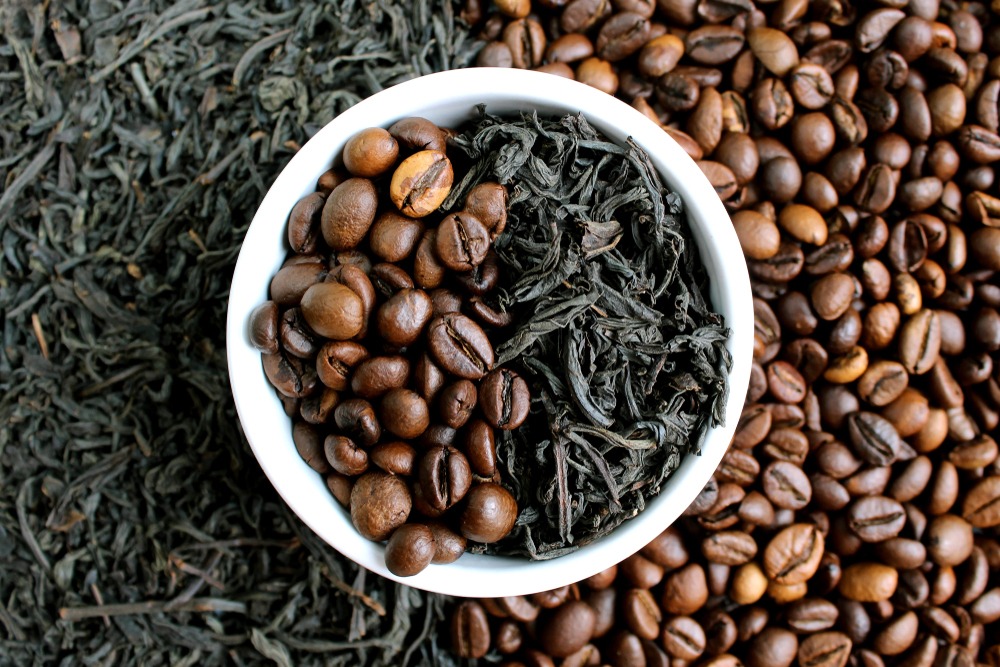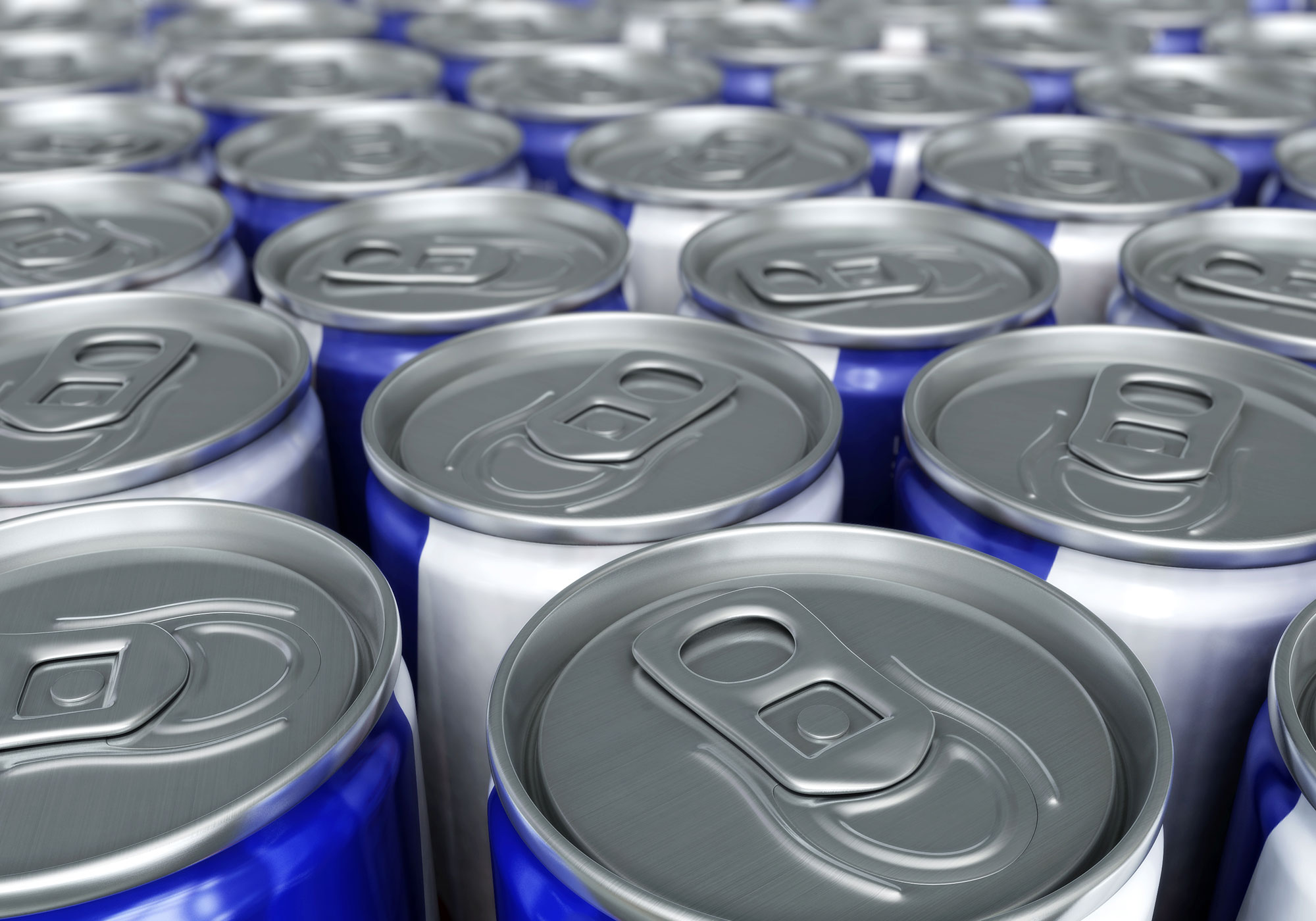What is Caffeine?
 Caffeine (1,3,7-trimethylxanthine) is a chemical compound found naturally in many plants such as coffee and tea, yerba mate leaves (also known as “mate,” “terere,” and “chamirrao”), kola nuts, guarana seeds, and cacao. Caffeine is a stimulant that increases wakefulness, improves concentration, and can also raise heart rate and body temperature. In addition to coffee and tea, caffeine is found in chocolate, and is sometimes added to (“infused” into) various items like breath mints, gum, beef jerkies, sunflower seeds, or other energy products such energy drinks and pre-workout supplements.
Caffeine (1,3,7-trimethylxanthine) is a chemical compound found naturally in many plants such as coffee and tea, yerba mate leaves (also known as “mate,” “terere,” and “chamirrao”), kola nuts, guarana seeds, and cacao. Caffeine is a stimulant that increases wakefulness, improves concentration, and can also raise heart rate and body temperature. In addition to coffee and tea, caffeine is found in chocolate, and is sometimes added to (“infused” into) various items like breath mints, gum, beef jerkies, sunflower seeds, or other energy products such energy drinks and pre-workout supplements.
Is Caffeine Prohibited in Sport?
No, caffeine is permitted in sports governed by the World Anti-Doping Agency (WADA). It is currently on WADA’s monitoring list which means it is not prohibited but WADA is monitoring it in case it becomes an anti-doping issue in the future. However, there are limits to the amount of caffeine athletes can use in NCAA sanctioned events. Please check directly with the NCAA for the relevant anti-doping rules.
Are there medical uses for caffeine?
Yes, there are medications which contain caffeine such as certain painkillers (aspirin and acetaminophen) and a substance called ergotamine to treat migraine headaches, or headaches that occur after surgery or in response to tension. It is also used to treat neonatal apnea, a breathing issue common in very premature infants. Caffeine pills are also available over the counter to temporarily counteract drowsiness.
Are there risks associated with caffeine?
A range of side effects have been reported with the use of caffeine including insomnia, jumpiness/hyperactivity, anxiety, nausea and lack of appetite, headache, tremor, or dizziness. Given how many foods, beverages, and supplements contain caffeine, it is possible to consume too much. Signs of an overdose of caffeine include irritability and mood problems, increased stress hormone levels, and difficulty sleeping. Long term overuse can result in cravings and withdrawal symptoms such as tiredness, mood changes, and problems concentrating. Severe caffeine toxicity can lead to cardiac arrest and requires urgent medical care.
Are energy drinks and pre-workout supplements with caffeine safe for athletes to use?
 Even though caffeine itself is not prohibited, energy drinks are not recommended for any athletes and can be especially harmful for junior athletes. Most adults can safely consume 400mg per day of caffeine, but the American Academy of Pediatrics does not recognize ANY safe level of caffeine for youth or adolescents.
Even though caffeine itself is not prohibited, energy drinks are not recommended for any athletes and can be especially harmful for junior athletes. Most adults can safely consume 400mg per day of caffeine, but the American Academy of Pediatrics does not recognize ANY safe level of caffeine for youth or adolescents.
Dietary supplements that advertise themselves as pre-workout or weight loss products often contain large quantities of caffeine and possibly other stimulants. All dietary supplements come with the inherent risk of contamination with performance enhancing substances. Even though caffeine is not prohibited in sport, there is the risk that a pre-workout or weight loss product will contain other prohibited stimulants (in addition to the caffeine). If athletes choose to use dietary supplements in spite of the known risks, USADA recommends using only third-party certified supplements. Please read USADA’s recommendation for third party certification.
Can I get a Therapeutic Use Exemption (TUE) for caffeine?
No, since caffeine is not prohibited, a TUE is not required to use caffeine.
Resources
[1] Chawala J. What is the average caffeine consumption in the US and how does it compare globally? https://www.medscape.com/answers/1182710-157550/what-is-the-average-caffeine-consumption-in-the-us-and-how-does-it-compare-globally (Links to an external site). Updated June 14, 2018. Accessed Dec 13, 2020.
[2] The world anti-doing code international standard. WADA prohibited list 2020. https://www.wada-ama.org/sites/default/files/wada_2020_english_prohibited_list_0.pdf (Links to an external site). Accessed Dec 13, 2020
[3] Maughan RJ, Burke LM, Dvorak J, et al. IOC consensus statement: dietary supplements and the high-performance athlete. Br J Sports Med. 2018;52(7):439-455.
[4] Willson C. The clinical toxicology of caffeine: A review and case study. Toxicol Rep. 2018;5:1140-1152.
[5] Caffeine. Quick Answers. Micromedex 2.0. Truven Health Analytics, Greenwood Village, Colorado, USA. Available at: http://www.micromedexsolutions.com.hsl-ezproxy.ucdenver.edu/ Accessed Dec 14, 2020.
Read more Spirit of Sport blog posts



